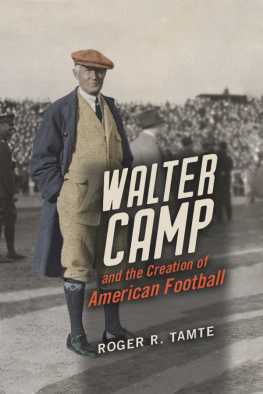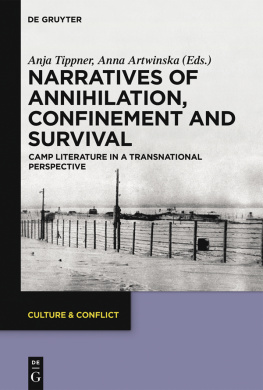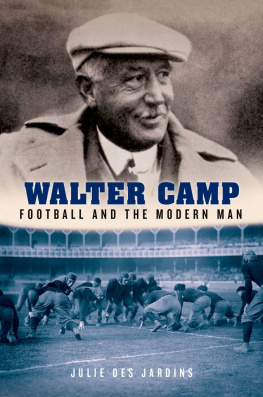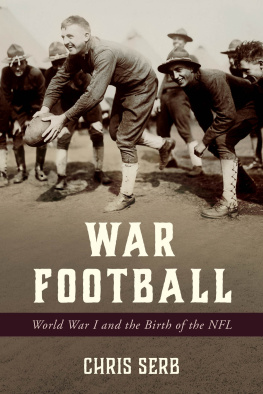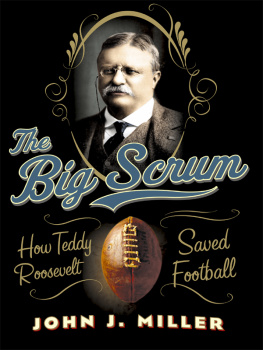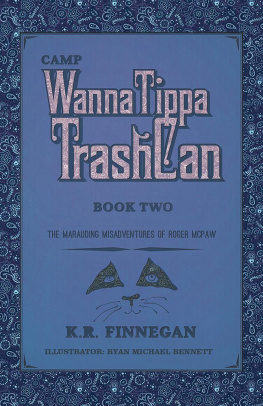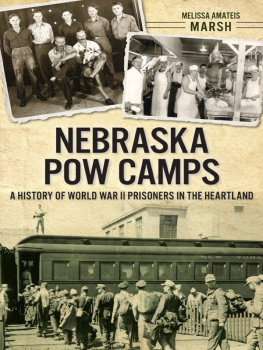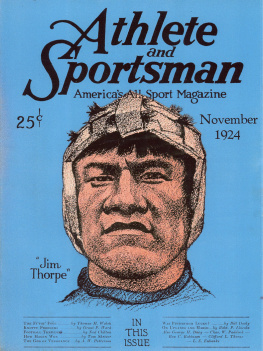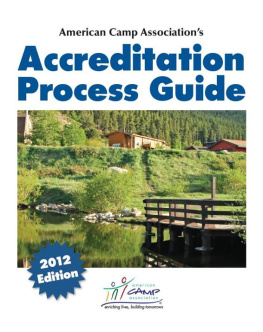Roger R. Tamte - Walter Camp and the Creation of American Football
Here you can read online Roger R. Tamte - Walter Camp and the Creation of American Football full text of the book (entire story) in english for free. Download pdf and epub, get meaning, cover and reviews about this ebook. year: 2018, publisher: University of Illinois Press, genre: Home and family. Description of the work, (preface) as well as reviews are available. Best literature library LitArk.com created for fans of good reading and offers a wide selection of genres:
Romance novel
Science fiction
Adventure
Detective
Science
History
Home and family
Prose
Art
Politics
Computer
Non-fiction
Religion
Business
Children
Humor
Choose a favorite category and find really read worthwhile books. Enjoy immersion in the world of imagination, feel the emotions of the characters or learn something new for yourself, make an fascinating discovery.
- Book:Walter Camp and the Creation of American Football
- Author:
- Publisher:University of Illinois Press
- Genre:
- Year:2018
- Rating:4 / 5
- Favourites:Add to favourites
- Your mark:
Walter Camp and the Creation of American Football: summary, description and annotation
We offer to read an annotation, description, summary or preface (depends on what the author of the book "Walter Camp and the Creation of American Football" wrote himself). If you haven't found the necessary information about the book — write in the comments, we will try to find it.
Roger R. Tamte tells the engrossing but forgotten life story of Walter Camp, the man contemporaries called the father of American football. He charts Camps leadership as American players moved away from rugby and for the first time tells the story behind the remarkably inventive rule change that, in Camps own words, was more important than all the rest of the legislation combined. Trials also emerged, as when disputes over forward passing, the ten-yard first down, and other rules became so public that President Theodore Roosevelt took sides. The resulting political process produced losses for Camp as well as successes, but soon a consensus grew that football needed no new major changes. American football was on its way, but as time passed, Camps name and defining influence became lost to history.
Entertaining and exhaustively researched, Walter Camp and the Creation of American Football weaves the life story of an important sports pioneer with a long-overdue history of the dramatic events that produced the nations most popular game.
|CoverTitleCopyrightContentsPrefaceAcknowledgments1. Beginnings, Known and Unknown2. Given a New Era3. Officially Under Way4. You Must Do Something5. Making It Their Own6. Captain7. The Extracurriculum and Beyond8. Fourth Year9. Moving on, Ready or Not10. Still under Construction11. The Main Invention12. Birth Year13. Impossible to Ignore14. Besides Medical School15. Career Realities16. Not So Easy After All17. Writer, Teacher . . . Director?18. Having Waited in Vain19. Father of Football20. An American Game of Football21. Headquarters on Gill Street22. Rivalry Demands Rules23. Why American Football Grew24. All-Americans25. Author for an Expanding Game26. Second Most Important Man in New Haven?27. Its Official: We Want to Win28. A Chief Charm of the Game29. What Does Walter Think?30. The End of Student Rule Making31. New Voices32. Critics and Defenders33. Breakup34. Failure Achieved35. The Future Foreseen36. Pax Intercollegiata37. Striving for More38. More than a Game39. Officially a Yale Official40. Not Done Yet41. The Game I Have Worked So Hard For42. A President Involved43. Tipping Point44. Democracy in Action45. Starting from Scratch46. Football as We Know It47. Besides Rule Making48. Away with the Old49. I Will Give It Up50. Alternative Service51. The Frankenstein of College Athletics52. Unrecognized LegacyAppendixNotesSelected BibliographyIndex|
Tamte has produced a well-researched account of Walter Camps wide-ranging life and careers that particularly included his actively working on the early development of the game of American football, and his many years at Yale. This is an easy to read and valuable look at one of sports amazing pioneers.Raymond Schmidt, College Football Historical Society
Embedded in this biography is a fantastic narrative history of how and why football exploded in popularity on college campuses and in American popular culture. Superbly researched and well written, this book will appeal to sports enthusiasts and scholars alike. Highly recommended. Choice
Tamte skillfully weaves myriad details of two interconnected stories. . . . A definitive study. Journal of American Culture
|Roger R. Tamte is a patent attorney and scholar of early American football who has...
Roger R. Tamte: author's other books
Who wrote Walter Camp and the Creation of American Football? Find out the surname, the name of the author of the book and a list of all author's works by series.

